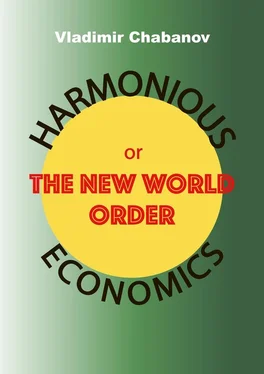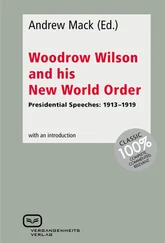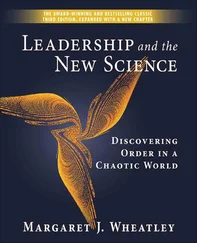On the other hand, human needs cannot be studied just as a random set of factors. In fact, they constitute a harmonious complex that reflects the person. Besides, some needs only exist together with other. For instance, the desire for luxury cannot emerge unless the hunger is satisfied. A trendy hat demands a fashionable dress to be worn with. Nevertheless, the level of correlation and interchangeability of various needs is different and does not impact their importance. The failure to satisfy some needs for a long time might disrupt the inner harmony of a person, and even disfigure them.
However, not all needs may be easily welcomed. For example, thirst for power and selfish ambitions of certain individuals often mean loss of freedom and poverty of others. From the social point of view, only the needs that can be satisfied without violating moral and ethical norms, trampling the rights of other people, of the society, or descendants, are worthy of respect. And it is such needs that we are going to address in this monograph. Other needs should be managed with the help of educational or psychiatric institutions, or law enforcement agencies. Furthermore, the impossibility of their satisfaction should be enshrined in the basic principles of economics and state organisation.
It should be mentioned that when the interests of an individual, a community, and the society match each other and combine harmoniously, this condition is observed without failure.And the fuller the implementation of this principle, the higher the level of society civilisation, and the more grounds to class it as a human society.
On the other hand, human needs are not abstract, they are made evident through certain conditions, things, and services that a human being requires. Therefore, everything that satisfies human needs, everything required for a decent living, that supports and restores human health, increases life tonus, encourages and assures procreation, etc. is classified in the group of commodities.Among these we find food and water; clothes and housing; medical assistance and sport facilities; spiritual wealth and clean nature. Besides, this group includes the goods and services that are provided to people by service sector actors, as well as by spheres that satisfy social needs (such as governance, science, education, healthcare, and defence).
Human labour is also classified among commodities, because, on the one hand, it satisfies human needs related to self-realisation; on the other hand, it is the driving force of production. Though, in fact, all other commodities can be described in this way, too. That is why the more they satisfy human needs, the more productive human labour is. Many things can be obtained by humans directly from nature without additional effort, the rest are produced by the people themselves. In the remaining part of this monograph this latter category will mostly be considered.
As a rule, needs exceed the total amount of commodities available, which stimulates people to act and develop, becoming an instrument capable of managing them. There exists an optimal correlation between the needs and the number of commodities to satisfy them. If the correlation exceeds the optimal value, that is, almost all needs are satisfied, this decreases the desire to work, and slows down development. However, if this correlation is below the optimal, then the needs become extinct, and the individuals live through degradation. Countries with huge property inequalities witness both these tendencies, which can lead to catastrophic results.
At the same time, if within a state there exists a tendency to satisfy one’s needs not through labour and productive talent, that is, by way of contributing to the productive efforts of the society, but through appropriation of goods generated by others, this inevitably entails destruction of both the production and the moral systems. Whether it comes from the top or from the bottom, such destruction contributes to the degradation of the state and the society. This has already been the case numerous times and history; similar situation can be witnessed across the world today.
For practical economics the classification of commodities into individual, collective and public is essential, for they are consumed in different manners. Individual commodities include the items that a person and their family members use outside of interaction with other people: housing, clothes, food, household items, cultural items, etc. Collective commodities category embraces the things that a person uses jointly with other people at the place of residence, work, or rest. These are medical services and police; utilities services and public transport; cultural, religious and sport facilities; roads, means of communication and many other things. Finally, public commodities are government entities and the army; higher educational institutions and communications; defensive structure and security systems; scientific, cultural and educational institutions. To sum up – all the services that satisfy the needs of all people belonging to a state and a society.
This classification explains why the distribution has a more significant impact on production, and expenses – on earnings. In fact, all commodities possess a certain duality of nature. On the one hand, they satisfy human needs; on the other – encourage production. Collective and public commodities are consumed by humans differently from individual ones, and the dependence of people on such commodities is quite different. Therefore, for each group of commodities specific distribution forms may be worked out to stimulate as much as possible their production and eventually improve the life quality and the morality of people.
All commodities depend on the production process. And in order to function properly, the production process, in its turn, requires commodities to satisfy its own needs. These needs include work tools and industrial facilities; freight transport and communications; energy, repair base, industrial communication, etc. This signifies that materialized labour and production meansare required by enterprises as much as commodities are required by people. They serve as a catalysator that makes live human labour more efficient.
Strictly speaking, the classification of labour products into commodities and production means is rather conventional, because providing a person with commodities corresponds to their productive labour. Besides, production means satisfy natural needs of people for work and development, and influence their mental, physical, and moral state. Moreover, the more productive qualities productive means have, the better their ergonomic properties, the better their design, and the higher their efficiency. This rule serves as yet another argument to support the unity of the World and the reality people live in.
Nevertheless, commodities and production means are not equal. Indeed, only commodities are the purpose of production. The production of production means is only necessary to the extent in which it saves social labour and contributes to the commodities production. Otherwise, production of production means becomes an excessive consumption of labour and resources, and is harmful for the society. This has happened quite often, both under socialist system and in modern capitalist states, due to the desire to optimize monetary flows, instead of regulating social labour consumption.
For example, in the USSR, production was brought to this state thanks to the active application of the “Law of exponential growth of production of production means’ formulated by K. Marx and elaborated by Vladimir Lenin. However, no limits were defined, that is why the production growth rates for group A (production of production means) in the USSR exceeded almost 8-fold those of group B(commodities production). As the result, industry developed rapidly, while the quality of life in the country stagnated.
Читать дальше












